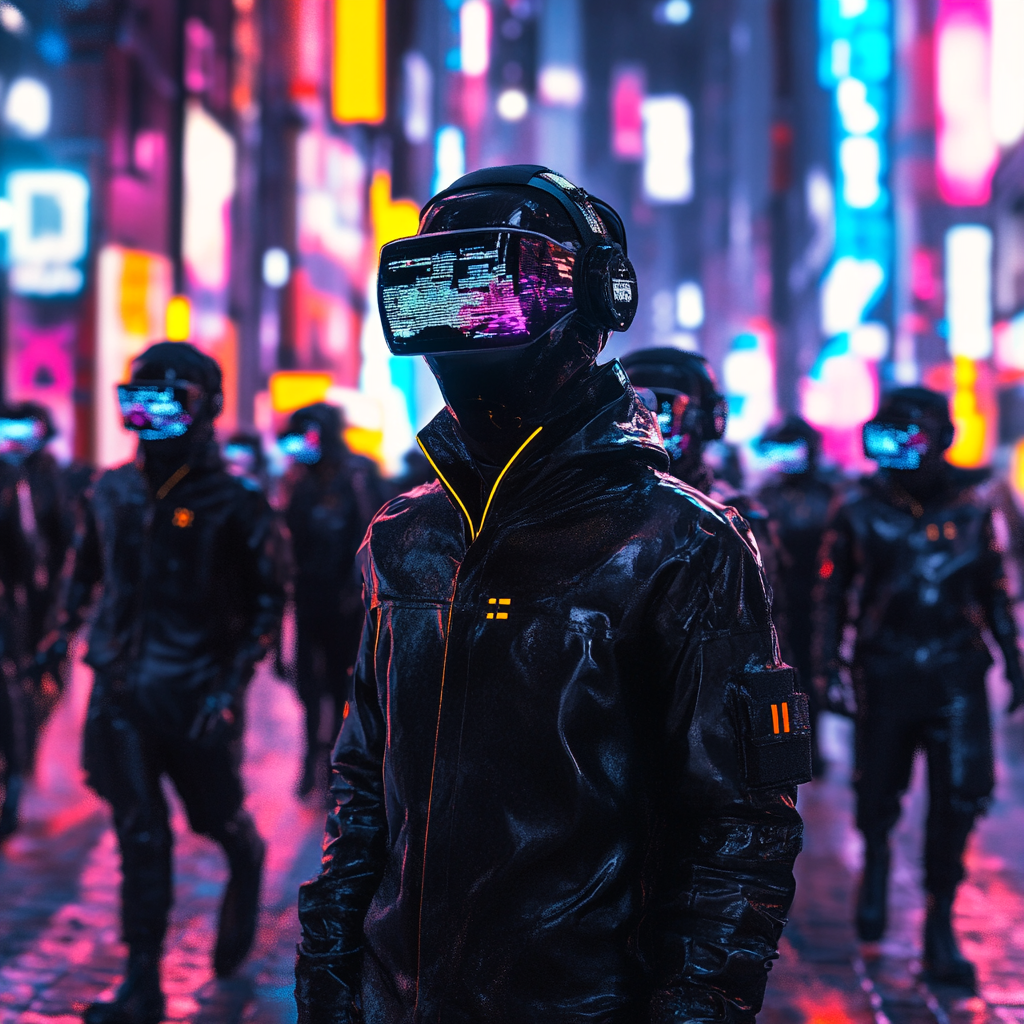
What is Cyberpunk? A Warning from the Neon Future
What is cyberpunk? At its core, it is a dystopian vision of what happens when unchecked technology collides with human greed.
It is the world where corporations rise above governments, where profit outweighs people, and where freedom becomes fragile under constant surveillance.
Cyberpunk is not just neon lights and futuristic tech. It is the philosophy of resistance in a society built for control. Its rebels are hackers, misfits, and anarchists who refuse to surrender, surviving in the cracks of systems designed to exploit them.
More than a genre, cyberpunk is a cultural lens that blends science fiction with social critique. Through books, films, games, and even fashion, it reflects our anxieties about corporate domination and our struggle to hold on to identity, humanity, and freedom. Cyberpunk endures because it feels less like science fiction and more like a warning—a mirror held up to the world we already live in.
Pop Culture as a Mirror
Cyberpunk has been defined not only by literature, but also by films and games that brought its philosophy to the mainstream. Each example reflects the same core warning: technology can liberate, but in the hands of corporations it almost always becomes a tool of domination.
Blade Runner (1982)
Ridley Scott’s Blade Runner asks what it means to be human in a world where life itself is owned by corporations. Replicants are engineered as disposable labor, denied rights, and hunted when they rebel. Its rain-soaked, neon-lit Los Angeles feels less like fantasy and more like a plausible corporate future where existence is commodified.
The Matrix (1999)
The Matrix is the ultimate metaphor for control. Humanity lives unknowingly inside a system built to harvest them, lulled into submission by a false reality. Neo’s awakening is the anarchist spirit of cyberpunk: risking everything to break free, even when truth is painful and freedom is fragile.
Cyberpunk 2077 (2020)
CD Projekt Red’s Cyberpunk 2077 drops players into Night City, a metropolis ruled by megacorporations. Healthcare, media, policing, even human bodies are commodities. As V, the player survives on the margins, forced into uneasy deals with the very corporations that exploit everyone. The game is a vivid exploration of what it means to live in a society where profit eclipses humanity.
Tron: Legacy (2010) and Tron: Ares (Upcoming)
The Tron films show how even digital worlds become battlegrounds for control. In Legacy, CLU transforms the grid into a glittering dictatorship in the name of perfection, while the upcoming Tron: Ares promises to push further, questioning what happens when artificial beings demand autonomy.
Novels
These stories echo the same concerns as cyberpunk literature like Neuromancer and Snow Crash that:
"when corporations build the systems we live in, rebellion is inevitable"
So... Are We Already Living in a Cyberpunk Dystopia?
The unsettling truth is that the cyberpunk future feels less like a prediction and more like our reality.
Corporations influence elections, control media platforms, and harvest unimaginable amounts of personal data. Meta and Google shape how we interact and what information we consume. Amazon controls vast swaths of commerce, logistics, and even cloud infrastructure. In parts of China, entire cities operate under facial recognition surveillance that mirrors Blade Runner’s dystopian streets.
Consolidation makes it worse. In the food industry, mega-brands own dozens of smaller companies, squeezing out competition and funneling wealth to a handful of conglomerates. In gaming, industry giants buy up independent studios, reducing creative freedom while tightening their grip on the market. Each merger is another step toward a world with fewer choices and more corporate control.
Meanwhile, inequality widens. Billionaires pour resources into space exploration while millions cannot afford housing or healthcare. Our phones function as both lifelines and surveillance devices, tracking our movements, habits, and even conversations. It is eerily close to The Matrix, where systems designed for convenience quietly become cages.

If cyberpunk warns us of a corporate-controlled dystopia, the real question is not “will it happen?” but “how much of it is already here?”
Why Does the Cyberpunk Message Matter?
Cyberpunk is not only fiction. It is a critique of power and a call to vigilance. It shows us the dangers of letting corporations operate unchecked and reminds us that the price of convenience may be freedom itself.
Yet it is also a celebration of resistance. Whether it is Deckard questioning the morality of his mission in Blade Runner, Neo breaking free in The Matrix, or V scraping by in Cyberpunk 2077, the spirit of cyberpunk lives in those who resist, adapt, and survive in hostile systems.
In Conclusion...
Cyberpunk is not simply about neon cities or cool futuristic gadgets. It is a cultural message wrapped in science fiction. It defines a world where technology serves profit over people, where corporations replace governments, and where rebellion becomes survival.
The genre endures because it speaks to the present. We may already be living in fragments of the cyberpunk dystopia it warned us about. But cyberpunk also reminds us that resistance is possible, and that even in the darkest futures, rebels will rise in the shadows.

